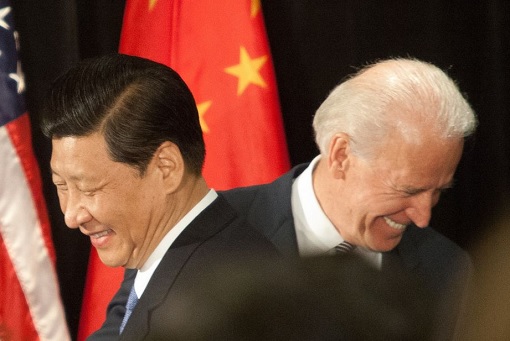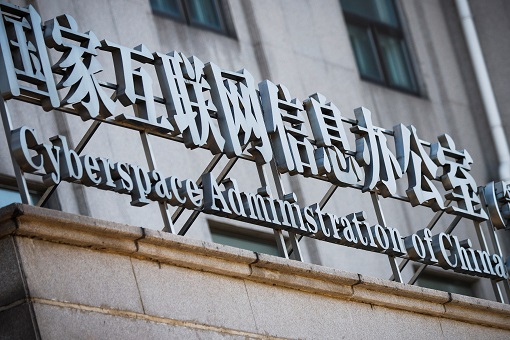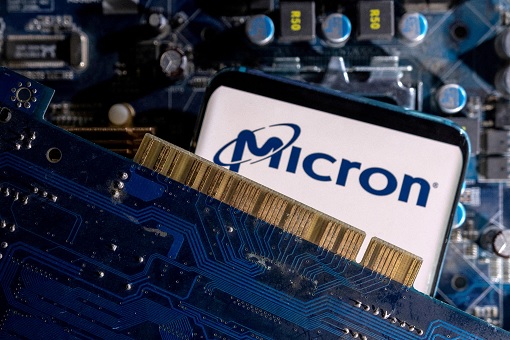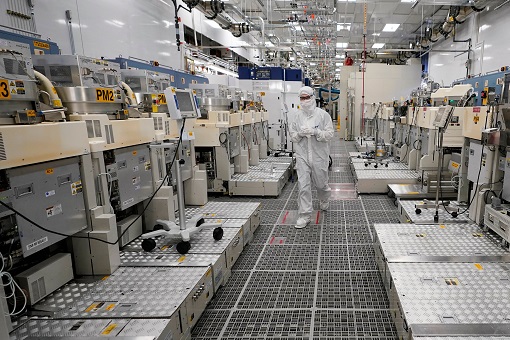You can only push someone so far for so long before he fights back. For the last couple of years, the U.S. has been aggressively trying to stop the rise of the red dragon – from trade war to tech war, and from blacklisting Chinese technology giant like Huawei to forcing South Korea, Japan, Taiwan and the Netherlands not to sell latest microchips and its related technology to China.
As the Group of Seven (G7) summit in Hiroshima, Japan ends on Sunday (May 21, 2023), Joe Biden thought he had successfully brought China to its knees. With all the blacklists, sanctions and whatnot slapped on Chinese tech giants, the U.S. president took a soft turn – claiming that the G7 did not want to harm China and was seeking “constructive and stable relations” with Beijing.
“We’re not looking to decouple from China, we’re looking to de-risk and diversify,” – Biden said. At the same time, however, Biden vowed to help Taiwan defend itself against a potential attack by China. Hilariously, despite NATO’s provocation of the Ukraine War, the G7 leaders now urged Beijing to pressure Russia to end the war in Ukraine and “support a comprehensive and lasting peace.”

Obviously, the Group of Seven wanted to have the cake and eat it too. They wanted to continue profiting from the massive Chinese market of 1.4 billion populations, and at the same time wanted China to be forever behind the U.S. – technologically, economically and militarily – so that the second biggest economy will continue to be dominated and at the mercy of America.
Hiroshima, which suffered the 1945 atomic bomb attack that ended the Japanese brutality during the World War 2, saw protesters carrying “No War No G7” banners. On the final day of the G7 summit, just as Joe Biden proudly told the world that he expected relations with China to improve “very shortly”, Beijing suddenly dropped the bombshell – chipmaker Micron is banned.
The Cyberspace Administration of China (CAC) announced that Micron products carry “serious network security risks” that pose hazards to China’s information infrastructure and threatens national security. If it sounds familiar, that’s because Beijing actually took a page from Washington’s favourite playbook where the U.S. will use “national security threat” whenever it decides to ban Chinese companies.

The decision came about 7 weeks after CAC kicked off a cybersecurity review of Micron’s products, in retaliation against sanctions imposed by Washington and its allies on China’s chip sector. This round, it’s Washington’s turn that is up in arms. The U.S. Department of Commerce said the move to ban Micron had “no basis”. It is tasting its own medicine now.
Since October 2022, the U.S. has unilaterally imposed sweeping export curbs on advanced chips and chip-making equipment to China, in an attempt to cripple the country by cutting off its access to critical technology allegedly for military purposes. In March, Japan and Holland announced bans on overseas sales of chip-making technology to China. Beijing has similarly criticized the bans.
It was not a coincidence that China announced an official investigation of Micron under its information security laws on April 4, hours after Japan joined Washington in imposing restrictions on Chinese access to technology to make processor chips on security grounds. They have underestimated China’s capability to play the game too when push comes to shove.

While some Western analysts have played down the impact of the ban, the fact remains that Micron is the United States’ largest memory chip maker. Crucially, mainland China and Hong Kong generated 25% of its US$30.8 billion in revenue last year. The firm, which previously bragged that any ban by Beijing won’t hurt its revenue, now says it will engage in discussion with Chinese authorities.
The way China bans Micron is quite “creative”. The crackdown says “critical infrastructure” projects, which the U.S. chipmaker has little involvement. But the definition of critical information infrastructure companies isn’t clear, which could be purposely designed in such way. Micron could lose access to sectors like telecoms, finance and transportation due to the vague definition.
However, the indirect message behind the clampdown is the biggest problem as it may be deciphered by existing Micron customers in China as a signal to move away from the U.S. firm to its rivals Samsung and SK Hynix. It could be a tactic to create fear, uncertainty and doubt. Nevertheless, Micron will definitely suffer an inventory shock and chaos in the immediate term.

Interestingly, the U.S. asked South Korea last month to pressure its chipmakers not to fill any market void in China if Micron products were banned. But will the Korean companies obediently refuse billions of easy money just because the government told them so? History shows whenever China boycotts certain companies, tonnes of competitors would fight tooth and nail to grab the market share.
Like the U.S. that did not provide details of security risks on Chinese companies, China too did not do so when Micron becomes the first American company to be banned during the tech war between both nations. The CAC only said that “China welcomes global companies and various platform products into the China market as long as they follow China’s laws and regulations.”
Micron Technology produces computer memory and computer data storage including dynamic random-access memory, flash memory, and USB flash drives. These are not high-tech products. If the South Korean companies were keen to play politics rather than business, competitors like MediaTek, SanDisk, Intel, Western Digital, AMD, Infineon and Seagate will be more than happy to jump in.
![]()

Since Beijing deliberately started investigating Micron, it has launched an all-out campaign to promote its home-grown chip industry, having spent billions of dollars in efforts to push for self-reliance thanks to U.S. trade and tech wars out of jealousy and fear of losing hegemony. So, the ban on Micron could be an experiment to see if the Chinese can survive without foreign supplies.
Other Articles That May Interest You …
- U.S. Chip War Goes Haywire – Taiwanese Chipmaker TSMC’s Bad Business Decision Has Boomeranged
- U.S. & Europe Threaten Malaysia To Ban Huawei 5G – Top 10 Reasons Why Anwar Government Should Call The West’s Bluff
- Electric Car As Cheap As $11,000 – How China Beats The U.S. In Electric Vehicles & Leaves Global Brands In The Dust
- Biden Repeating Trump’s Mistakes – Here’s Why The U.S. Cannot Ban TikTok Like Huawei
- U.S. Tech War On China Backfires – How Sanctions Boosting China Chipmaking Industry To Become Self-Sufficient
- Apple’s Secret $275 Billion Investment In China – A Warning Why The U.S. Cannot Afford To Start A War With The Chinese
- How TikTok Erased $250 Billion From Facebook In 1 Day – The Biggest Wipeout In Stock Market History
- A Desperate Move To Rebrand Facebook – Here’s The Toxic Reason Zuckerberg Changed Its Name To “Meta”
- Trump To Block Downloads Of TikTok & WeChat On Sunday – But Every Teenager Knows How To Use VPN To Bypass It
- Here’s The Real Reasons Trump Bans TikTok – And It Has Nothing To Do With National Security Threat
- From Trade War To Tech War – After 5G Technology, The US Aims To Cripple China’s Artificial Intelligence

|
|
May 22nd, 2023 by financetwitter
|


|

|

|

|

|

|




























Comments
Add your comment now.
Leave a Reply